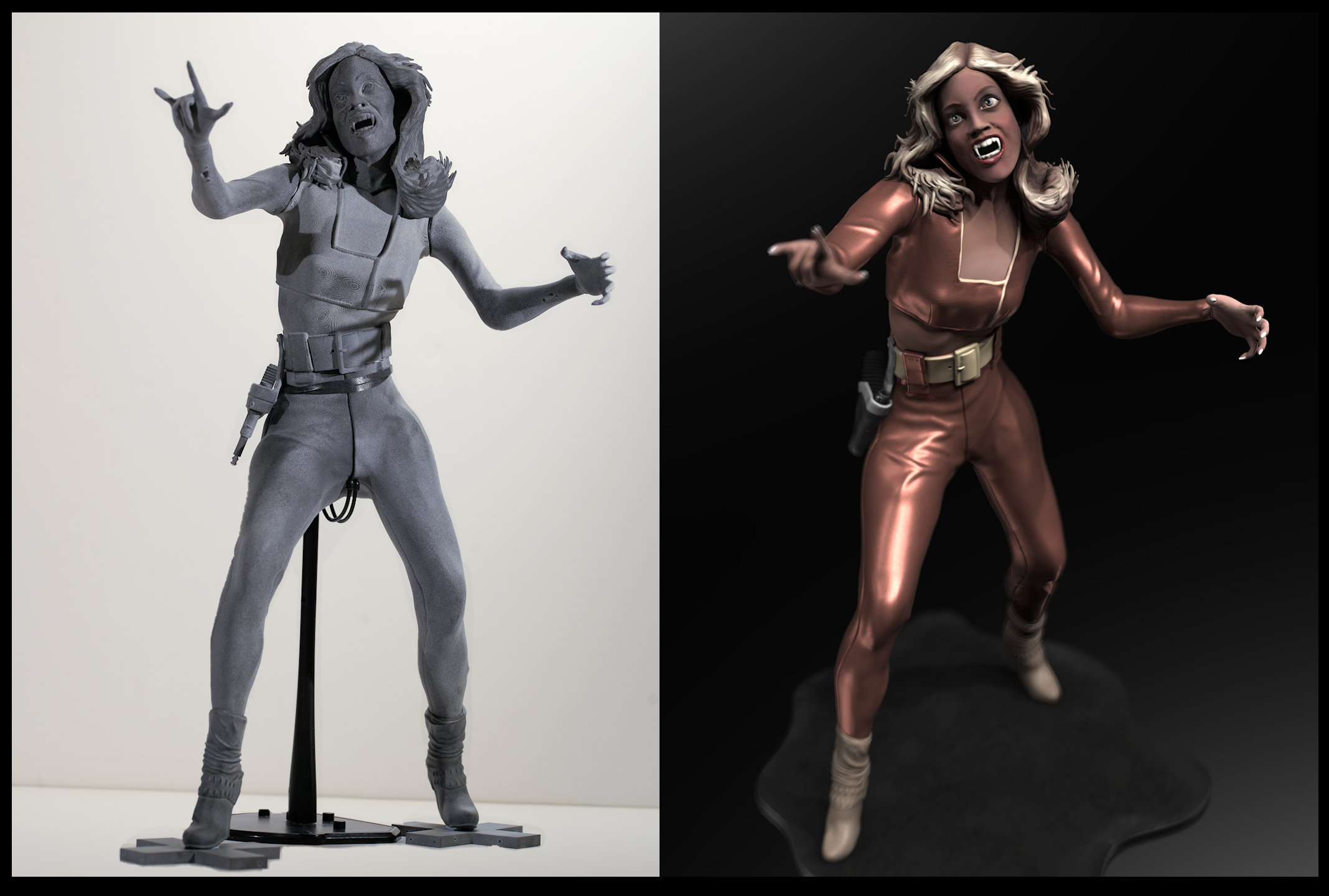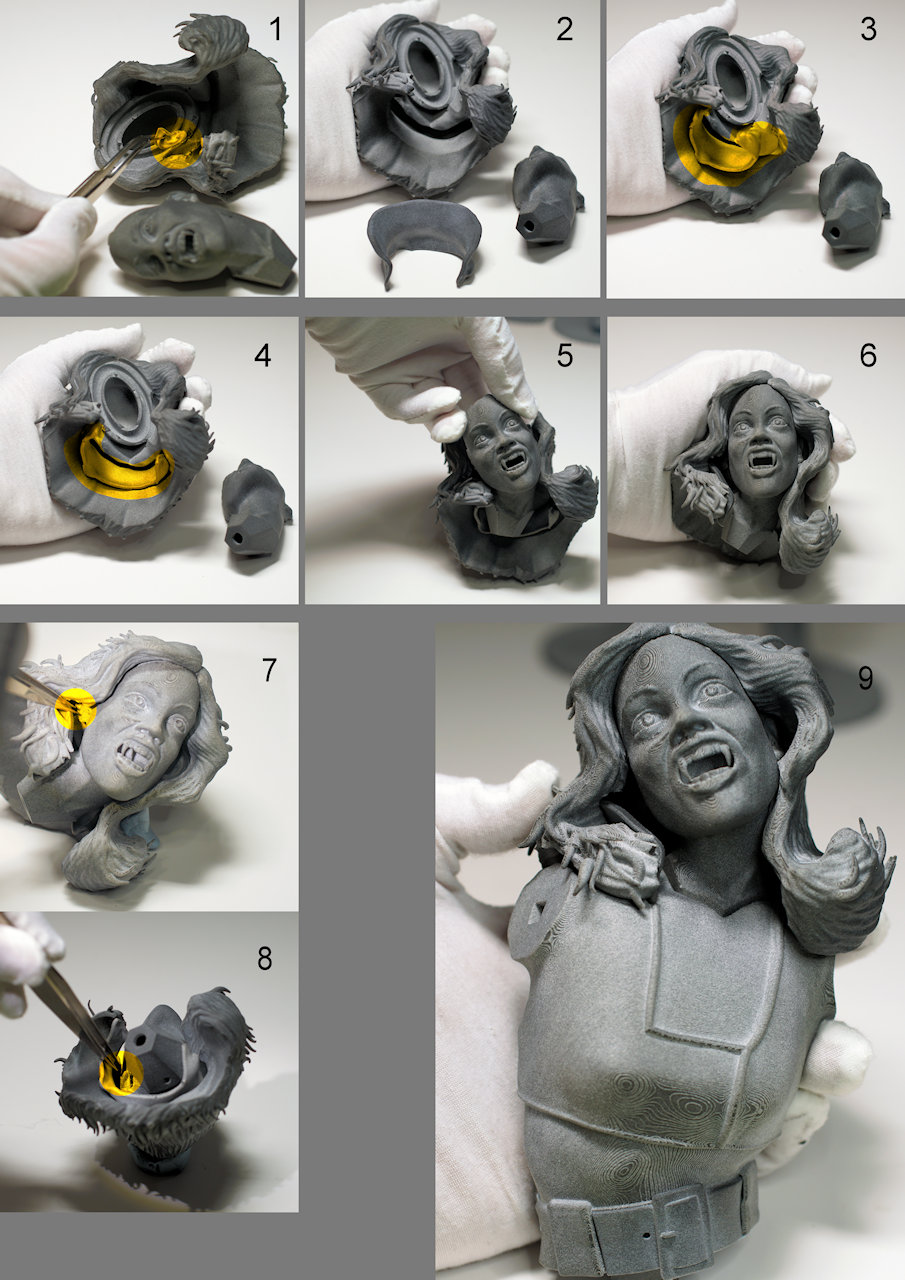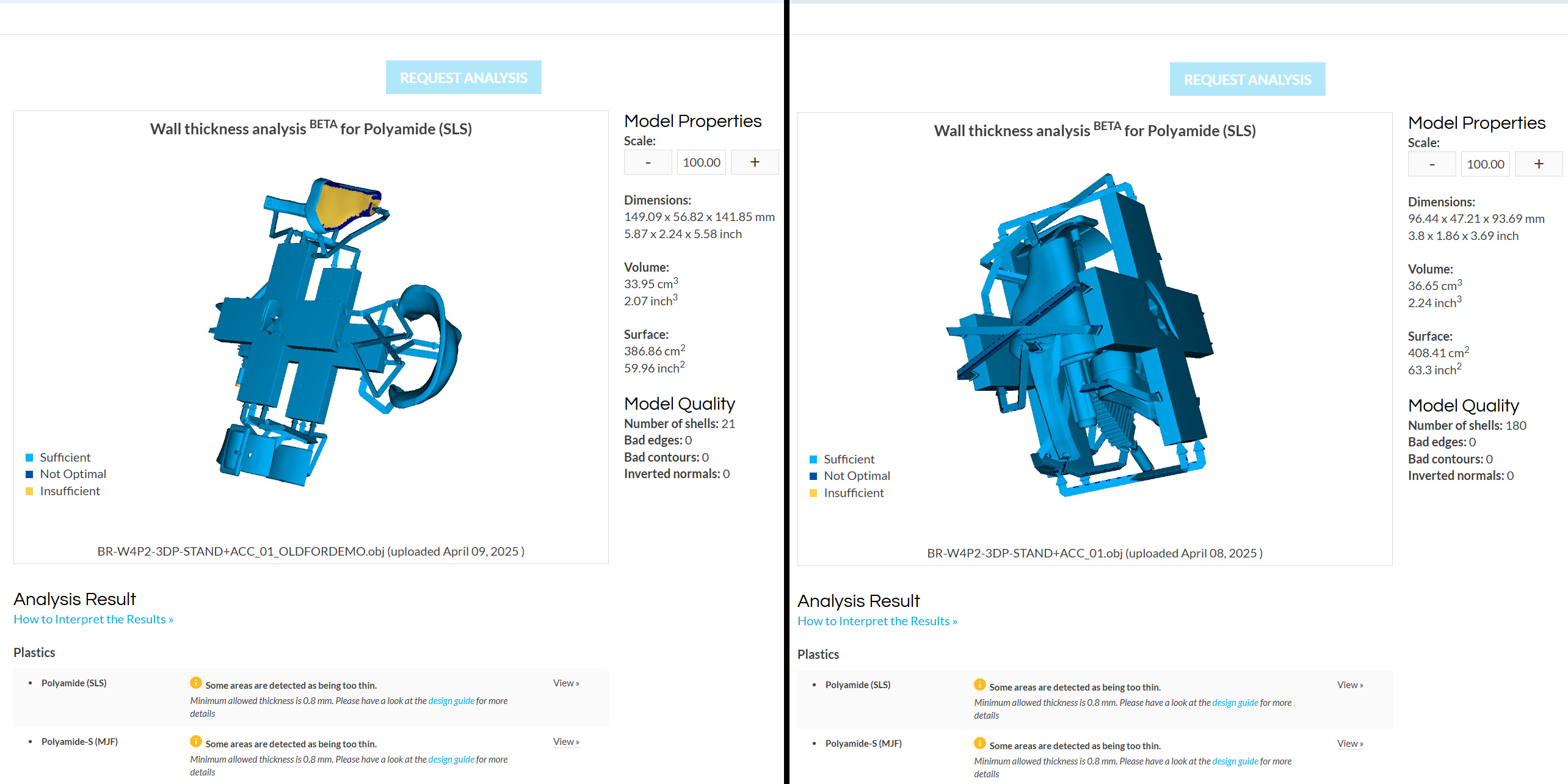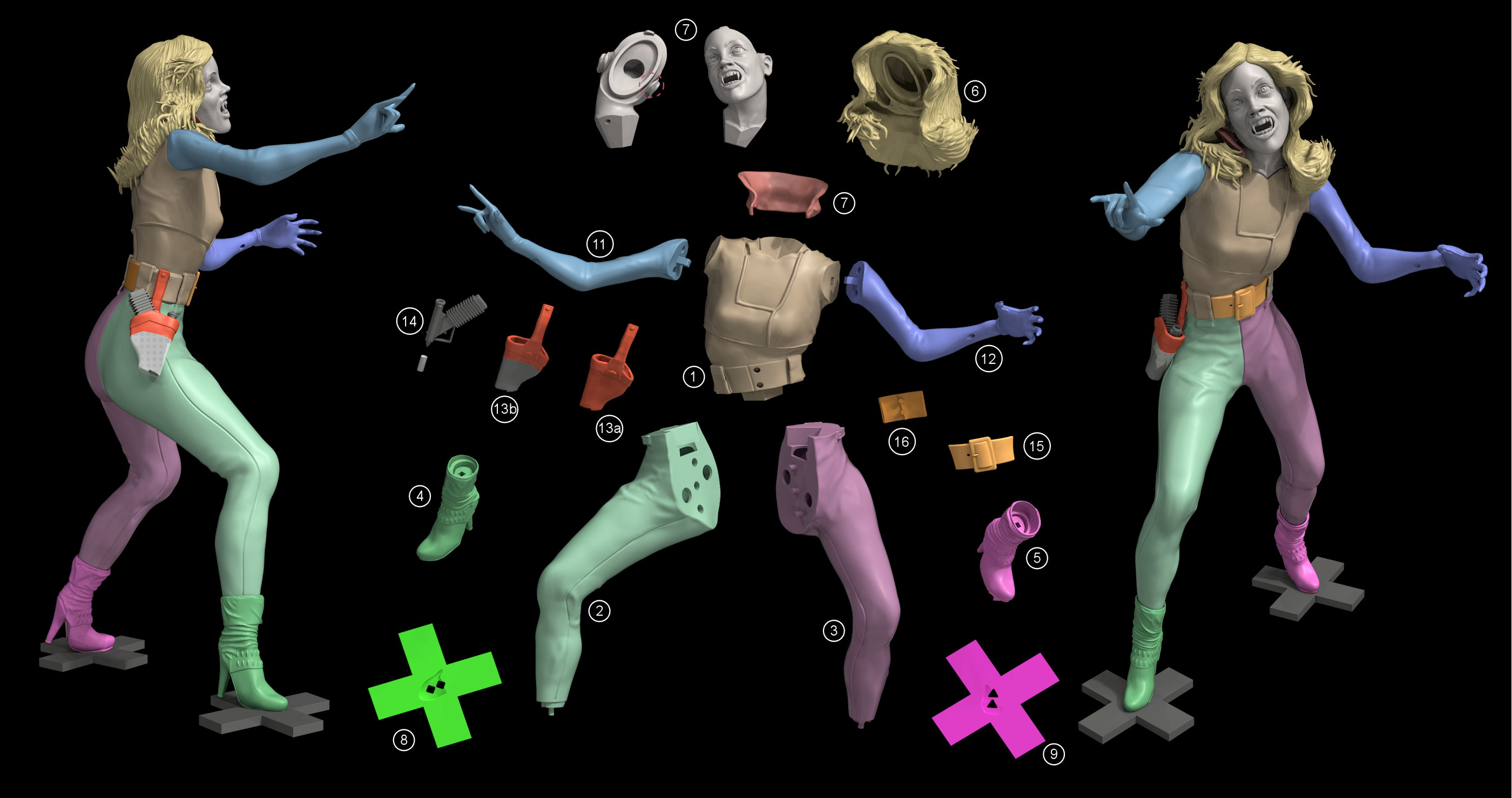Just received the 3D prints of the Wilma 4.2 sculpture from i.Materialise and I’m now test-fitting everything to ensure a smooth final assembly.
For this prototype, I opted for Multi-Jet Fusion printing in P6 polyamide. This material is quite robust and has a bit of flexibility, which is perfect for handling during the prototyping phase.
It’s worth noting that for a final product aimed at consumers, resin printing could be a better choice. Resin typically offers higher resolution and less visible layer lines, which can also lead to a smoother finish for detailed painting.
Overall, I’m very happy with how the printed parts look. Even intricate details like the vampire fangs came out sharply. As expected, a few delicate hair strands broke during printing, and I anticipate a bit more of this as I figure out the best way to put everything together.
As you can see in 𝗜𝗺𝗮𝗴𝗲 𝟬𝟭 (𝗟𝗲𝗳𝘁), a temporary support stand is needed for now, but I don’t foresee needing this once the parts are permanently joined.
There was a predicted overlap issue between the head and the complex, flowing hair. To resolve this temporarily, I’ve detached the right ear. 𝗜𝗺𝗮𝗴𝗲 𝟬𝟮 illustrates the assembly sequence I’ve planned to reattach the ear after painting and before the final bonding.
The shirt collar will also be integrated at this stage (𝗜𝗺𝗮𝗴𝗲 𝟬𝟮, 𝘀𝘁𝗲𝗽𝘀 𝟬𝟯-𝟬𝟰). If the final print is in polyamide, the collar should have enough flex to fit around the pocket. However, with a resin print, some minor trimming might be necessary. After these small adjustments, the complete sculpture should assemble easily.
I’m really pleased with the progress so far. Transitioning to 3DCoat for the digital sculpting and print design has significantly improved my ability to create dynamic, detailed figures that have the potential to become a commercial product in the future.



